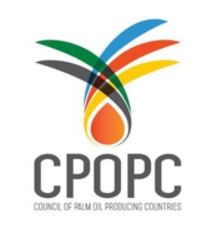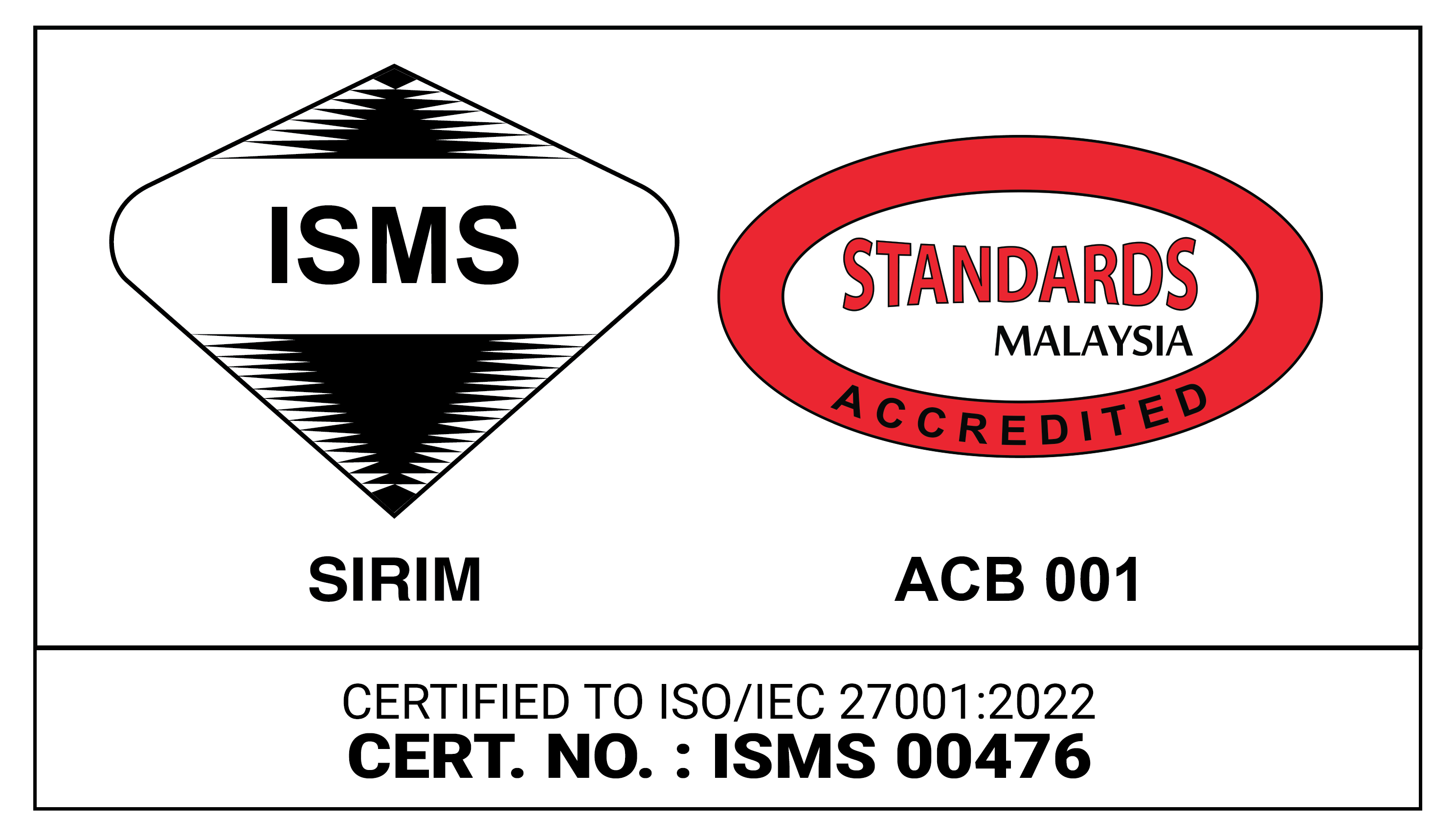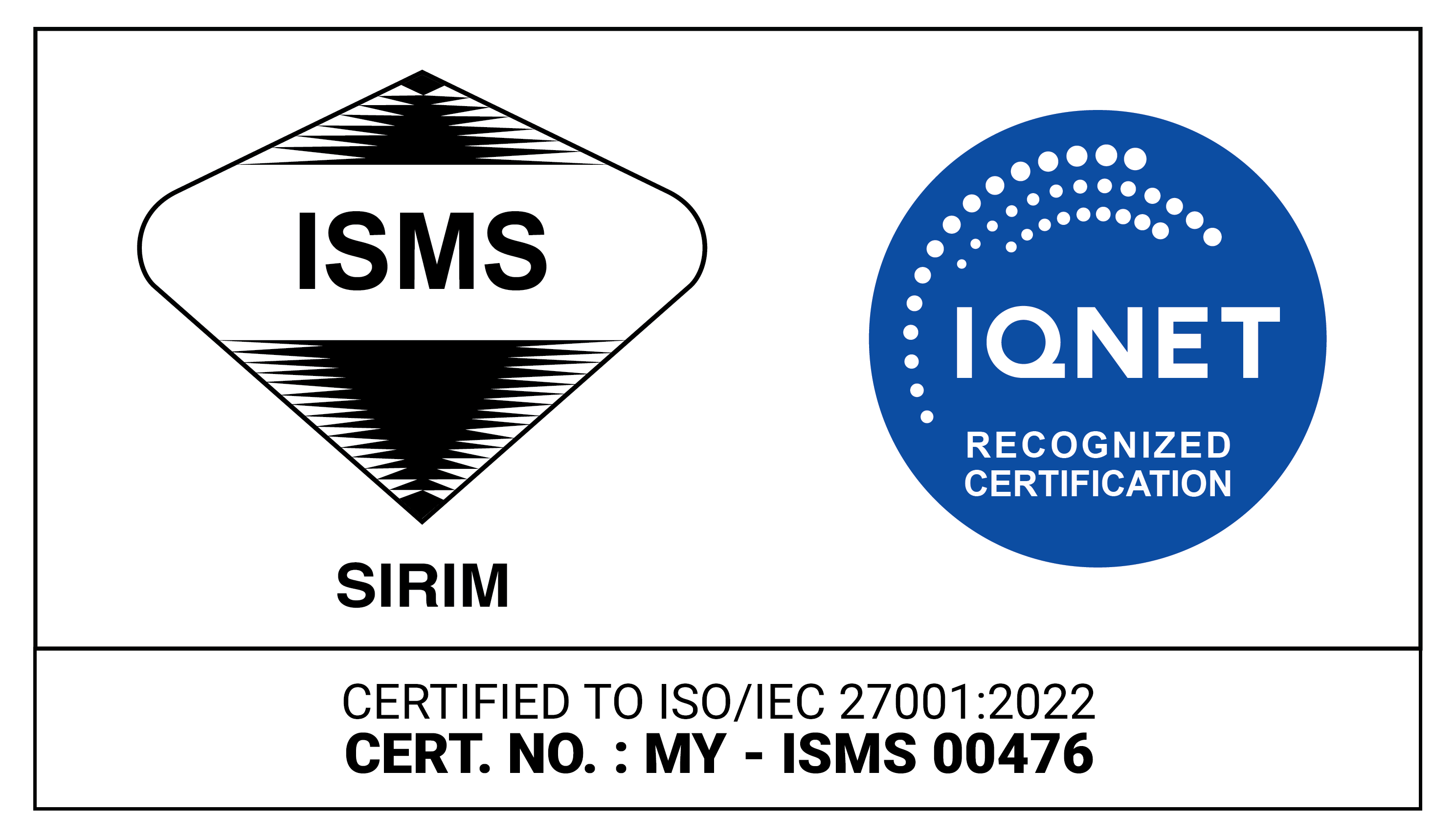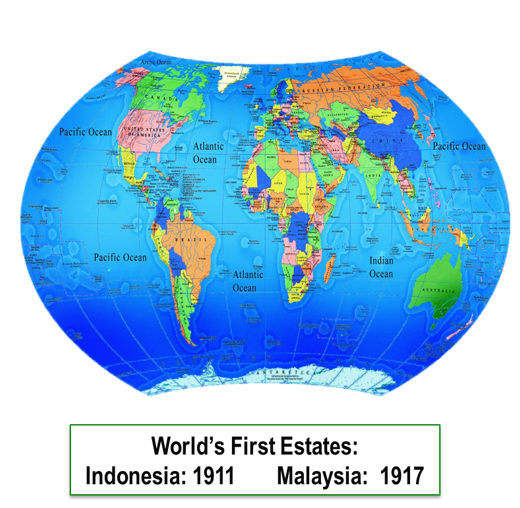
-The oil palm (Elaeis guineensis) is indigenous to West Africa.
-1848: Introduced to Southeast Asia when planted in the Bogor Botanical Garden, Indonesia.
-1870s: Arrived in Peninsular Malaysia (then Malaya) by the British as an ornamental plant.
-1905: Henri Fauconnier, a French entrepreneur, arrived in Malaya and later established a coffee plantation in Rantau Panjang, Selangor.
-1917: Fauconnier planted oil palm seeds at Tennamaram Estate in Bestari Jaya, Selangor. This became the first local commercial oil palm plantation.
Introduction
As of 2021,
- Total planted areas of comparive to palm oil is 24.38 hectares compared to soybean with a planted area of 131.58 hectares.
- Total planted areas in percentage for oil palm is 8% which is lesser than soybean which needs a planted area of 43%.
- Total production world wide palm oil (76.833 million tonnes) of production compared to soybean (60.316 million tonnes).
- 31.7% World Oil Production.
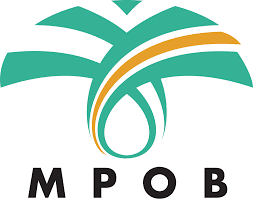
Malaysian Palm Oil Board (MPOB)
-MPOB was established by the Parliamentary Act (Act 582) and established on 1 May 2000, taking over, through the merger, the functions of the Malaysian Palm Oil Research Institute (PORIM) and the Palm Oil Registry and Licensing Board (PORLA).
-MPOB is the leading government agency to serve the country's oil industry. Its main role is to promote and develop the country's goals, policies and priorities for the well-being of the Malaysian palm oil industry.
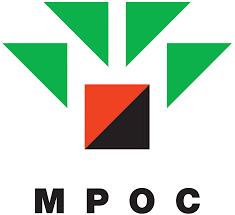
Malaysian Palm Oil Council (MPOC)
-In 2006, MPOPC was rebranded as the Malaysia Palm Oil Council (MPOC) with a broader field of responsibility to support the development of the oil palm industry.
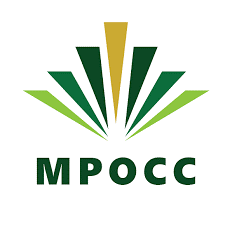
¡Malaysian Palm Oil Certification Council (MPOCC)
-MPOCC is a non-profit non-profit organization that is developing and implementing the Malaysian Sustainable Palm Oil (MSPO).
-MPOCC is registered as a company under the Companies Act 1965 and is limited to securities administered by a Board of Trustees and commenced operations in October 2015.
LINK TO PORTAL
SERVICES
1)Statistical and market information website for various sectors in the palm oil industry to the industry - https://bepi.mpob.gov.my/index.php/en/
2) Daily palm oil transaction contract reporting system - https://e-reg.mpob.gov.my/
3) Oil palm fruit producer monthly statement submission system - MPOB (EL) ET4 for estate category - https://e-sub.mpob.gov.my/public.php?page=public_login
4) Delivery system and processing of monthly statements of Palm Fruit Traders, Palm Planting Materials and Oil/Palm Kernel Traders - https://e-peniaga.mpob.gov.my/
5) Monthly statement submission system for the categories of Oil Palm Fruit Factory, Refinery, Palm Kernel Crushing Plant, Palm Oleochemical Plant and Bulk Storage Facility - https://e-kilang.mpob.gov.my/ekilang_main/
6) Industry information analysis reporting system from various sectors (updated quarterly) - https://sectoral.mpob.gov.my/
7) Palm Oil Monitoring System - Submission of Form MPOBL3 For Each Consignment of Palm Oil Shifting (http://sps.mpob.gov.my).
8) E-Oleo System-Oleochemical Transaction Contract Reporting (http://e-oleo.mpob.com.my)
9) E -QC - Export Quality Declaration/ Local Transfer/ Import (http://eqc.mpob.gov.my)
10) Mylesen - New Application, Renewal, Add Activity, Add Throughput, Main Category License Amendment (https://e-lesen.mpob.gov.my)
11) E-Lesenpk-New Application, Renewal, Amendment of Smallholder Category License (http://e-lesenpk.mpob.gov.my)(a) Palm Oil Monitoring System - Submission of Form MPOBL3
12) Malaysian Sustainable Palm Oil (https://mspo.mpob.gov.my)
13) MSPO Trace (https://mspotrace.org.my)
LIST OF ACTS
-Malaysian Palm Oil Board Act 1998
-Memorandum and Article of Association of Malaysian Palm Oil Council
-Memorandum and Article of Association of Malaysian Palm Oil Certification Council
-Customs Act 1967
-Malaysian Palm Oil Board Act 1998, Malaysian Palm Oil Board (Licensing) Regulations 2005
-Licensing Appeal Guidelines
-Customs Act 1967, Customs (Prohibition on Export) Order 2012
-Oil Palm Crop Exporting Guidelines
-Guidelines for Palm Plantation Crop Financing Scheme (TSPKS) and Palm Crop Farm Input Input Scheme (IPPKS)
-Mechanization Fund Guidelines
PROGRAMME AND INCENTIVES
-Palm Oil Smallholder Replanting Financing Scheme (TSPKS) and Palm Oil Smallholder Inputs Financing Scheme (IPPKS)
-Crop Integration Incentive Scheme (ITA)
-Livestock Integration Incentive Scheme (ITE)
-KPSM Weight Center Incentive Scheme
-Mechanisation and Automation Fund (MARCOP)
-OPIMIS (Oil Palm Industry Mechanisation Incentive Scheme)
-Investment & Product Commercialization Schemes for the Production of Oleo Derivatives
-SME Incentive Scheme for the Production of Palm-Based Value Add Food Products
-Palm Phytonutrien Commercialization Grant
-Incentives for MSPO Certification of Independent Smallholders and Organised Small
-Incentives for MSPO Certification of Estates and Processing Facilities
-Joint Malaysia-European Union (EU) Economic And Technical Committee On Palm Oil
-Joint Malaysia-France Technical Committee on Palm Oil
-Malaysia-EU Joint Working Group
-ASEAN-EU Joint Working Group On Palm Oil
-National Initiatives For Smart Climate Oil Palm Smallholders (NI-SCOPS) Programme with the Government of Netherlands
-Collaboration with China Green Food Development Centre (CGFDC) on Cooperation in Connection with China Green Food Certification Scheme and MSPO Certification Scheme
-MSPO Simple Verification Scheme (SVS) initiative with Japanese industry members
-Council of Palm Oil Producing Countries (CPOPC)
Council of Palm Oil Producing Countries (CPOPC)
¡Malaysia and Indonesia have partnered to strengthen the global oil market through the establishment of the Council of Palm Oil Producing Countries (CPOPC).
¡On November 21, 2015, the CPOPC Establishment Charter was signed by the Minister of Plantation and Commodity Enterprises (MPIC) Malaysia and the Minister of Coordinating Maritime Affairs and Resources Indonesia at the 27th ASEAN Summit in Kuala Lumpur.
CPOPC devotes its attention to cooperation and (economic) development. The Council aims to promote, develop and strengthen cooperation in the oil palm industry among the member countries. This is to ensure long term benefits of such palm oil endeavors to the economic development and well-being of the people of the member countries.
STANDARDS AND REGULATIONS
-National Agricommodity Policy 2021-2030
-Malaysian Sustainable Palm Oil (MSPO) Standard
-Mandatory enforcement of Malaysian Sustainable Palm Oil (MSPO) certification under the Malaysian Palm Oil Board (Licensing) Regulations 2005.
-MPOB Licensing Appeal under the Malaysian Palm Oil Board (Licensing) Regulations 2005.
-Application for export of palm oil products overseas according to the Export Guidelines for Palm Oil Materials.
-Application for domestic and overseas mechanization activities fund according to the Palm Oil Mechanization Fund Guidelines.
-Application of incentive schemes in the form of grants to increase the ownership and use of machinery for oil palm plantation activities in accordance with the OPIMIS Scheme Policy.
-National Biomass Strategy
-Sustainability Policy of Malaysia Oil Palm Planting Activities
-Environmental Quality (Clean Air) Regulations 2014
- Malaysian Sustainable Palm Oil (MSPO) Certification
-Mandatory enforcement of Malaysian Sustainable Palm Oil (MSPO) certification under the Malaysian Palm Oil Board (Licensing) Regulations 2005
KPI AND ACHIEVEMENTS – oil palm sector
Total export value of 2020 = RM73.2 billion
Targeted Export Value for 2021= RM75 billion
Jan-Jun 2021 achievement= RM47.5 billion; source: DOSM)
Malaysian Sustainable Palm Oil Certificate (MSPO)
(2020)
- Total area certified: 5.207 million hectare
- Total mill certified: 428
- 7 series of Jelajah MSPO programme conducted amongst oil palm planters
SAWIT DIVINE BLESSING (SAWIT ANUGERAH TUHAN- SAT)
(2021)
-As of 12 Oct 2021, the website has recorded 576,748 visitors.
-Entries for online contest from 10 Febuary 2021 to 31 December 2021 has recorded 131,623 participants as of 30 September 2021.
-Virtual installation and posters were installed on the sides of the main entrance and new posters on 12 door lifts
-TV programme Senduk Kuali aired daily has garnered 411,000 views; and total Ramadhan views had reached 12 million views
-MPIC Multi-Comodities Raya TVC has garnered 258,000 views.
-A total of 73 billboards to be installed nationwide.
-International programmes conducted in South Asia, Asia Pacific and the Middle East.
What are the strategies and steps to boost palm oil prices?
-increase palm oil blend with petroleum diesel through B10 Biodiesel Program (10% blend of palm biodiesel and 90% petroleum diesel);
-strengthening existing major export markets, especially China, India, Pakistan, and the United States and aggressively promoting palm products to penetrate new markets such as the African continent;
-enhancing research and development (R&D) activities in the production of new products and value added downstream products;
-enhancing market access through bilateral or multilateral free trade agreements (FTAs) or regional negotiations.
What is the Ministry's plan for improving the socioeconomic status of smallholders who depend on oil palm especially during the price drop?
To reduce the level of dependence on oil palm, the Ministry strongly encouraged smallholders to implement crop integration. This method, if practiced systematically, while providing additional income to smallholders, will also reduce the country's dependence on imports of food from abroad.
What steps has been taken and will be taken by the Ministry to assist all oil palm farmers especially smallholders in obtaining the Malaysian Sustainable Palm Oil (MSPO) certification which has been mandatory since January 1, 2020?
To mitigate the financial burden of smallholders, the implementation of the Malaysian Sustainable Palm Oil (MSPO) expenditure is fully borne by the Government which includes training costs, auditing costs, purchase of personal protective equipment and storge shelves of chemicals.
The Government has also increased the incentive rate of MSPO auditing costs from 70% to 100% and has provided a new incentive for MSPO preparation costs by 50% for estates ranging from 40.46 to 1,000 hectares. Meanwhile, incentive for organized smallholders has also increased from RM10 per hectare to RM55 per hectare. For millers, the Government incentivies up to 30% of the cost of auditing.
The ministry is also actively organizing the Jelajah MSPO Program for oil palm planters nationwide.
What are the advantages of the Palm Oil Smallholder Replanting Financing Scheme (TSPKS)?
The scheme is designed to meet the current needs of oil palm smallholders in undertaking replanting activities. The scheme is open to those with palm trees over 25 years of age and above with a maximum financing limit of 6.5 hectares. The government has designed the TSPKS scheme not to burden smallholders with a low interest rate of 2%, a moratorium of 48 months, no collateral and no guarantors.
How is an owner identified as owning a plantation> 100 acres and subject to WPL?
WPL is imposed on estate owners who have an MPOB license from the estate category where the farm area is more than 100 acres or 40.46 hectares.
Case 1: if a person has 12 oil palm plantation plots in several states and each plantation is only 10 acres in size, is he / she counted in the category eligible for WPL?
No. Because he/she is under a Private Smallholder license which is a farm area of less than 100 acres (40.46 hectares). Application and approval of MPOB license for the category of private estates and smallholders is under the responsibility of the Region as the rules and conditions of land also differ between states and districts. Therefore, oil palm plantation plots in different states or districts cannot be placed under one (1) license.
Case 2: if a person has a garden the size of 120 acres, but only 70 acres are fruitful. Is he/she still subject to WPL given the size of his farm is over 100 acres.
He/she will be subject to WPL as his MPOB license is in the estate category and the possibility of 50 uncultivated acres has the potential to be planted with oil palm in the future.
Based on our understanding, the amount of WPL to be paid will depend on the amount of FFB produced for one month.
Case 1: will the farm owner bring all sales receipts along with Form WPA No.3 to make payment at the Customs office?
The Royal Malaysian Customs Department informed that the collection of WPL is under the responsibility of the state. MPOB licensees must bring the completed WPA No.3 form along with two (2) supporting documents, namely the monthly statement of MPOB (EL) ET4 and invbois/summary issued from the buyer.
Case 2: if the WPL payment refers to the total FFB sales as recorded in the sales receipt, is there a possibility that the oil palm fruit trader (DF) conspired with the plantation owner, to deliberately falsify the FFB volume and lower sales value so that the plantation owner is charged the WPL lower?
The Royal Malaysian Customs Department informed that they could not confirm the false information and there may be forgery of documents. However, the Royal Malaysian Customs Department made a check/ cross check between the two supporting documents attached, namely the monthly statement MPOB (EL) ET4 and the invoice/ summary issued from the buyer.







